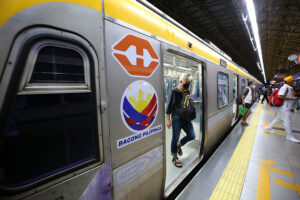THE construction of Light Rail Transit Line 2’s (LRT-2) West Extension project suffered another delay due to funding unavailability, according to the Light Rail Transit Authority (LRTA).
According to Hernando T. Cabrera, LRTA administrator, no definite construction date has been set for the project as a result, with the rail line also lacking a multi-year obligational authority (MYOA), a prerequisite for budgeting works that take multiple fiscal years to complete. An MYOA signifies the government’s commitment to finance future requirements beyond the current budgeting period.
“We do not have yet (a target construction date) because we do not have funds. We are also missing the MYOA,” Mr. Cabrera told reporters last week.
The Department of Transportation said last year that it is hoping to begin the construction of the West Extension project in 2025.
The project has secured P2 billion from the General Appropriations Act out of the nearly P11 billion estimated cost of the project, Mr. Cabrera said.
The LRTA through the Transportation department has a pending MYOA request.
“It is a domestically funded project. So what we are doing now is we have consultants now who are preparing the conceptual designs,” he said.
The proposed LRT West Extension covers three kilometers from Recto Avenue station to Pier 4. This line will have three stations: Tutuban, Divisoria and Pier 4.
The project also includes the procurement of additional light rail vehicles to meet growing passenger demand.
Mr. Cabrera said the P2 billion so far obtained for the project will support preliminary activities such as acquiring right of way.
“(The preliminary works) will take time. As of now we are finalizing the agreements with the utilities,” he said.
At the moment, the LRTA is finalizing relocation agreements to move the equipment of Manila Electric Co. (Meralco), Maynilad Water Services, Inc. and telecommunications companies that will be affected by the construction.
Meanwhile, Mr. Cabrera said that there is also a possibility to tap the private sector for the project in the absence of funding.
“What I can say is this can be (a public-private partnership. Not the entirety but this can have several packages. The west extension can be domestically funded as planned, and then the operations and maintenance can be for PPP,” he added. — Ashley Erika O. Jose

